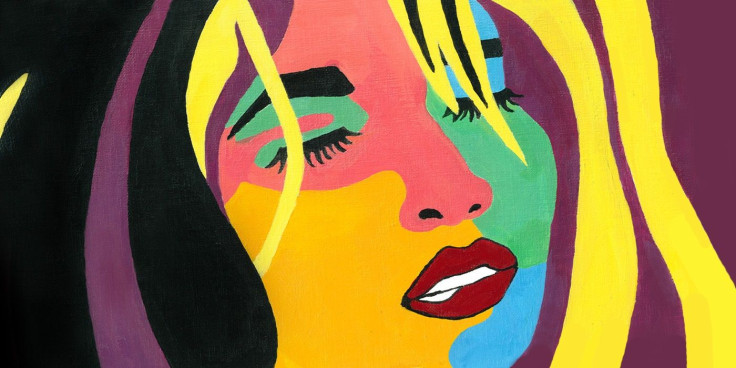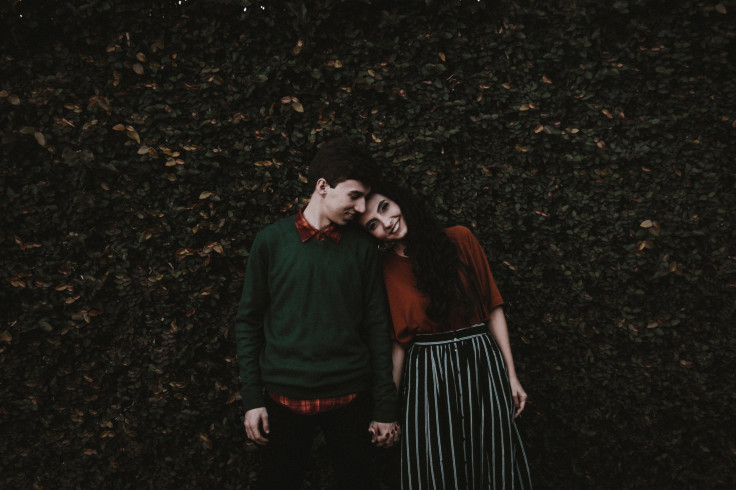Why Couples Start To Look And Act Alike: Doppelgänger Dating

The obnoxious couple who finishes each other’s sentences, laughs together on cue, or even wears color-coordinated outfits is known as “couple twins” or “boyfriend twins.” The phenomenon refers to the subconscious attraction we develop for someone who is eerily similar to us — our doppelgänger. Perhaps stranger, the longer we date our partners, the more likely we’ll start to morph into them.
As human beings, we’re instinctively drawn to people who remind us of ourselves, but what might account for such narcissism? Science suggests the subconscious desire to be with someone physically similar to us is a combination of factors, including evolutionary forces such as attraction or desire, psychology, and individual mating strategies.
“We are drawn to those we have the most in common with, and we tend to have the most successful long-term relationships with those we are most similar to,” Dr. Wyatt Fisher, a licensed psychologist in Boulder, Colo., told Medical Daily.
Doppelgänger Dating: Pop Culture
Pop culture has dabbled in doppelgänger dating through both TV and dating apps. People have inflated ideas about their own traits and abilities, known as “positive illusions,” which is why it’s not far-fetched to imagine them desiring a partner who shares their likeness.
For example, on Seinfeld's episode, "The Invitation," Jerry meets a girl who acts, talks, and looks just like him. They both possess similar facial features, have darkish hair color, and even have the same initials.
"She's just like me. She talks like me. She acts like me. She even orders cereal at a restaurant. We even have the same initials” says Jerry.
“Now I know what I’ve been looking for all these years,” Jerry says. “Myself!”
“Will you stop it man?” yells Kramer. “You’re freaking me out!”
Fisher emphasizes we are drawn to people like us because their traits are familiar, so we tend to view them favorably. This also applies to facial features; when we see a face that looks like ours, we tend to trust it more, and deem it as more cooperative.
Dr. Fran Walfish, Beverly Hills family and relationship psychotherapist, echoed that sentiment: “They’re just so accustomed to looking in the mirror and seeing themselves that the familiarity is what becomes the favored,” Walfish told Medical Daily.
In a 2010 study in Personality and Social Psychology Bulletin, researchers morphed images of participants’ faces to create faces of strangers. When the unknowing participants were asked to rate the attractiveness of their own morphed face alongside the other random faces, they preferred the faces of those who had their own features. We tend to perceive those with a similar face to our own as a better, more trustworthy person, which may explain why we want to date them.
In 2011, the online dating site Find Your FaceMate set out to match prospective mates based on similar facial features, which is suspected to be a good sign of compatibility. The site uses an algorithm that assesses 66 different facial points to pair potential couples.
“It’s about the shape of the face. We lead with the face,” site founder Christina Bloom told IBTimes TV. “That’s the first level of chemistry. You see someone and you decide within the first few minutes whether you’re interested in them or not.”
Physical similarities are brought on by genetic similarities, and possibly hint at our desire to preserve our gene pool.
Genetic Similarity
Physical similarities are a way of assessing underlying genetic similarities. This can lead us to be subconsciously attracted to someone who is a mirror image of ourselves, known as “assortative mating” or “self seeking like” hypothesis, where we subconsciously seek criteria of beauty or reproductive fitness in relation to ourselves. Pairing with people who are genetically similar to us acts as an assurance that our own genetics will be safely maintained and passed on to future generations.
T. Joel Wade, professor of Psychology at Bucknell University, believes we evolutionarily seek relationships with kin to gain assistance with life tasks, which helps us survive, and therefore, preserves our genetic lineage. We subconsciously want to pass on our own genes, so we search for someone who looks like us to boost our chances of having a child similar to us. These phenotypes include, but are not limited to, body size, skin coloration/pigmentation, and age.
Phillipe Rushton, a psychologist at the University of Western Ontario, and his colleagues, have demonstrated the more heritable the physical characteristics, the higher the chance of mating between individuals with those particular traits. For example, height and wrist circumference are more inheritable than waist size. The researchers noticed spouses are most similar on the more genetic components.

We’re also likely to pick partners with similar DNA, according to a 2014 study in Proceedings of the National Academy of Sciences. In the study, the researchers examined the genomes of 825 non-Hispanic white American couples, and looked specifically at single-nucleotide polymorphisms, which are places in their DNA that are known to commonly differ among humans. The couples displayed fewer differences in DNA than when compared to two randomly selected individuals. The researchers emphasize that genetics may play a role in mate choice, but it’s small.
Positive assortative mating plays a bigger role in couple pairings, because “like attracts like” when it comes to incomes and educational backgrounds. Previous research finds Americans increasingly marry someone whose background and lifestyle is similar to their own, which results in a stronger and more stable relationship. They’re more likely to have things in common, and share the same values and beliefs due to their similar backgrounds.
Couples Morphing Into Each Other
Unconscious Mimicry: Emotional Mimicry
We tend to imitate the people we’re close to, such as friends or family, which is why we begin to share the same mannerisms, gestures, tone of voice, and body language. Walfish believes this mirroring behavior begins in the mother-infant relationship where a mother holds the infant, and imitates the infant’s expression while vocalizing the emotion implied by the infant’s expression.
For example, if a baby smiles, the mother coos, and if the baby cries, the mother will mirror the dissatisfaction, and then vocalize a speculative hypothesis, such as “you’re hungry,” “you’re tired,” or “you have a wet diaper.”
“When the parent mirrors the infant, the mirroring action helps the child... over a period of months, to develop a greater sense of self awareness, and self control as they see their own emotions within their parents’ faces,” said Walfish.
In turn, the infant then learns to mirror their mother’s emotions. Facial expressions, gestures, and the process of mirroring help infants establish connections learning to express emotions, and promote social communication later in life. This is what helps couples “become similes to expression” when they partner up in long-term relationships.
The mirror neurons of the brain are what enable us to mimic people’s actions. This is where the brain performs normal mirroring in human behavior. When we talk to someone, we unconsciously mimic their actions and posture to make them feel more comfortable, and develop a sense of familiarity. A 2015 study in Human Brain Mapping found the mirror neurons in the brains of couples in good marriages were more active when they tried to figure out their partners’ emotional puzzles, or when their spouses reacted in ways that didn’t make sense, like looking happy after they talked about losing their job.

Shared Experiences Breeds Similarity
Genetic similarities provide an evolutionary explanation why people subconsciously begin to date their doppelgängers. Science also suggests the duration of a relationship can influence how much partners resemble one another. Late psychologist Robert Zajonc of the University of Michigan explored the notion of convergence of appearance, or why couples begin to look like each other over time. In a study, he asked a group of volunteers to match photographs of men and women based on their facial similarity, and found couples who’d been married for 25 years were overwhelmingly paired together.
Zajonc theorized this occurred for two reasons: living a long life together meant that shared experiences left similar lines on faces, and caused couples to look similar; or genetic similarity became more evident as age removed distinguishing features, like less defined cheeks or jaws.
However, Wade believes there’s another subconscious behavior that plays an influential role in facial likeness between couples.
“I personally think it has more to do with emotional mimicry than selecting genetically similar partners to begin with,” he said.
Wrinkles
Wrinkles are partly caused by the use of certain muscles in the face, so it makes sense that couples who cohabit are more likely to get wrinkles in the same places because of a lifetime of shared emotions. In Zajonc’s study, facial wrinkles and other facial contours, for instance, were defined enough that the judges were able to match husbands and wives far more often when the couples were older than when they were younger.
Wade suggests we engage in unconscious emotional mimicry by imitating the people we are around the most.
“[O]ur facial lines are similar as a result — the shared similar emotional experiences create this,” he said.
If our partner has laugh lines, we’ll probably have them too. If we have dark circles under our eyes, our partner probably does too.
Syntax
Couples begin to sound alike due to unconscious mimicry, synchrony, and because we select partners who are similar to us in fundamental ways. Humans do this across all relationships, from those we have with our colleagues to our friends. A 2010 study in Psychological Science found we’re actually more compatible with our significant other if our language styles are similar at the start of the relationship.
April Masini, relationship and etiquette expert believes this similarity continues to grow as families or romantic couples begin to spend a lot more time together. They “hear and see the way the other expresses themselves, and they learn from that repetition” she told Medical Daily. In addition, using the same phrases and syntax is an example of shortcutting communication through shared experiences.
Behavior
Inevitably, if we start to adopt our partners’ body language and syntax, we’ll also tend to adopt their behavior. Couples not only act and speak alike, they can also change their behavior, in particularly their habits. A 2007 study in JAMA Internal Medicine found if one spouse quit smoking, and began to run or eat healthier, their partner was more likely to do the same.
Immune System
Our immune system is considered a unique chemical reflection of us, including our eating and exercise habits, and the random viruses and colds we’ve had in the past. Only 25 percent of our immune system can be traced to genetics, and the other 75 percent is due to our lifestyle habits. A recent study in Nature Immunology found married couples tend to have very similar immune systems, with about 50 percent less variation than compared with random strangers. This suggests if we share a similar lifestyle with our live-in partner, like eating together, working out, or partying, our immune systems are likely to evolve to be very similar — for better or for worse.
Like Attracts Like: Happiness Or Bust?
Some of us may end up with doppelgänger partners because we desire partners who look or act like us. Science shows us genetic compatibility is linked to a happy marriage, but we don’t know exactly why: are we happy because we understand one another, or because we share similar genes? Does being happy lead to facial similarity, or is it the facial similarity that leads to happiness?
We do know we subconsciously mirror the behavior of our friends, family, and partners to relate better and establish a deeper emotional bond. But, does this mirroring dictate the longevity and success of our relationships? Our ability to empathize is what drives all human relationships.
Are doppelgänger couples happier in the long run? Maybe. Maybe not.
We all desire someone who can complement us, understand us, and help us reach our best potential.
If this someone tends to be as really, really, ridiculously good looking as you, then pat yourself on the back for having impeccable taste.



























